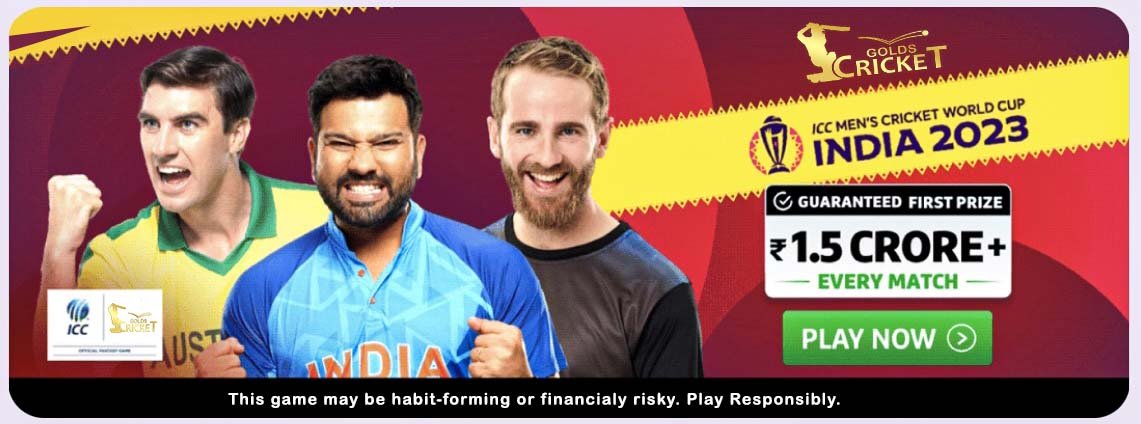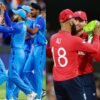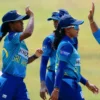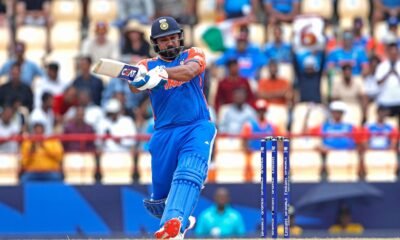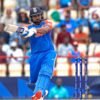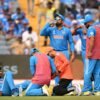Cricket
The Dutch must not go the Kenya way | Cricket
[ad_1]
In the end, Netherlands seem set to finish this ODI World Cup exactly how they were expected to — at the bottom of the points table. Although they beat West Indies and finished runners-up in the World Cup qualifiers in July in Zimbabwe, nobody would have frankly anticipated more from a team that had to scour for sponsors and net bowlers for their week-long camp in Alur near Bengaluru before the tournament. Certainly not from a team playing its first ODI World Cup in 12 years.

And yet, the Dutch have had their moments. None bigger than beating South Africa for the first time in ODIs, as if to show that their triumph in the T20 World Cup in Australia last year wasn’t an anomaly. In Pune on Wednesday, they were also going toe-to-toe with England for the first 35 overs of the game before Ben Stokes and Chris Woakes cobbled together a 129-run stand to ensure the defending champions didn’t plummet further. Other than these transient spikes, though, it’s been a journey of stark learnings and self-discovery for the Dutch players through their travels in India over the past month — from attempting to imbibe nuances such as the importance of rotating strike under pressure to a general understanding of what it takes to compete with the best teams at the highest level.
What can the Dutch do with these lessons though?
Because for the foreseeable future, these players will return to obscure surroundings, unsure of when they will get to rub shoulders with the cream of international cricket again. The ODI Super League, which allowed Netherlands to play bilateral contests against South Africa, England, Pakistan and New Zealand in the 2020-23 cycle, has been scrapped. For the next World Cup in 2027, expanded to 14 teams, the top ten based on ICC rankings will earn automatic qualification while the rest battle it out via the qualifiers. Netherlands, currently ranked 14th, will probably have to take that circuitous route again. Which may mean more contests against the likes of Ireland, Nepal, Oman and UAE rather than the top teams.
According to the ICC Future Tours Programme (FTP) for 2023-27, Pakistan will tour Netherlands for three T20Is in May next year. Then there’s the T20 World Cup in West Indies and USA, for which they have earned automatic entry by virtue of finishing in the top eight in last year’s event. But the road ahead is uncertain beyond that.
“Yeah, look, the reality of it is that there is less funding and there is less sort of opportunity and there is less exposure,” Netherlands’ Teja Nidamanuru, a middle-order batter of Indian origin who smashed a 76-ball 111 in that victory against West Indies, said earlier in the tournament. “Look, there’s a difference between someone like Australia, India, England, South Africa or even New Zealand, they’re always playing each other. And the exposure and the sort of know-how (they have).”
After the loss to England on Wednesday, Nidamanuru elaborated: “These guys play against each other all the time. They play in IPL. They have lots of exposure in terms of what’s going on. In the Netherlands, we don’t have a first-class system. And then you’re thrust onto the ICC World Cup scene, or the qualifiers, or whatever. And then you’re facing quality bowlers who are bowling 135 plus or being able to turn the ball.”
It’s a challenge that many Associate or weaker teams have been subjected to. Think Kenya, who stunned West Indies in the 1996 World Cup and conjured a dream run to the semi-finals seven years later. Just as striking was their alarming decline, as a mixture of misgovernance, poor results and lack of exposure left them in a situation where they are now hard to trace. Bangladesh, a full member since 2000, have had nothing more than the odd upset to flaunt in seven World Cups. There may be a deeper malaise than just scheduling, but the lack of contests against Australia, England and India surely don’t help. That their last three ODIs versus Australia have come in ICC events – 2019 World Cup, 2017 Champions Trophy and 2015 World Cup – is just one example.
An outlier in this regard seems to be Afghanistan. In just their third ODI World Cup, the Afghans have defeated former champions Pakistan, England and Sri Lanka, and came ever so close to stunning the Australians a couple of days ago. If they can get past South Africa on Friday, it will be only net run rate that would keep a semi-final entry beyond the realm of possibility.
They, too, are crippled by the lack of game time at the elite level. If they are able to still compete, even sparkle, it is due to the exposure that their top players are gaining by playing in T20 leagues around the world. Whether it’s Rashid Khan, Mohammad Nabi, Mujeeb Ur Rahman, Rahmanullah Gurbaz or Naveen-ul-Haq, they are all hot property in the ever-growing T20 landscape. While Netherlands have previously benefitted from the nous and experience of former all-rounder Ryan ten Doeschate — a familiar face in County cricket and various T20 leagues – producing players good enough to spark the interest of these franchises is easier said than done.
Ultimately, it is the ICC – the game’s governing body – that has to act. And if it intends to retain the status of the ODI World Cup as a marquee event and not just the preserve of a cosy club, that time is now.
[ad_2]


